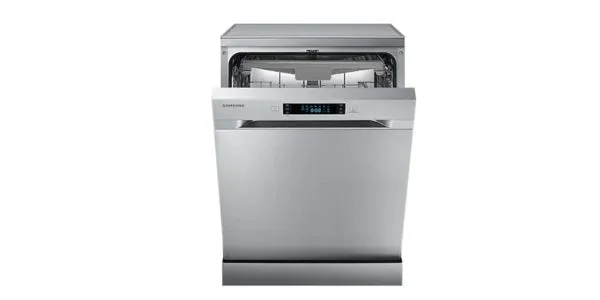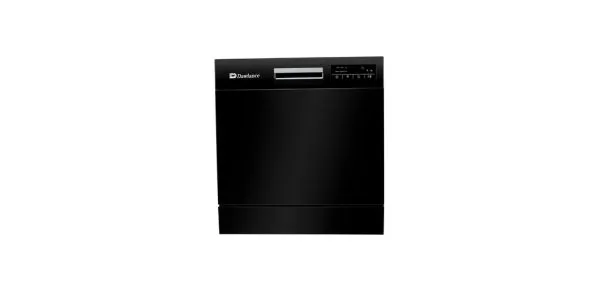think Dishwashers Waste Water? Discover the Real Facts

Many people assume thatdishwashersuse a lot of water and waste it compared to washing dishes by hand. However, with modern technology, dishwashers are designed to be water-efficient and can actually save water in your household. It’s time to rethink what you know about dishwasher water usage.
How Dishwashers Use Water Efficiently
Dishwashers today are built to use just the right amount of water needed to clean dishes thoroughly. New models are smart about how they consume and recycle water during each washing cycle, reducing unnecessary waste. This means they can clean a full load with less water compared to traditional methods.
Modern Dishwasher Water Usage Compared to Hand Washing
- Using an energy-efficient dishwasher with a full load can use between 3 to 5 gallons of water per cycle.
- Washing dishes by hand often uses up to 20 gallons or more, depending on how long the tap runs.
- Studies show that using a modern dishwasher can reduce total water usage by up to 50% compared to hand washing.
- The consistent temperature and pressure in dishwashers also ensure better hygiene with less water.
The Role of Water-Efficient Features in Dishwashers
Many dishwashers now come with water-efficient features that help cut down on consumption while improving performance:
- Sensors that detect how dirty the dishes are and adjust water use accordingly.
- Multiple wash cycle options that use less water for lightly soiled dishes.
- Soil sensors that reuse water between cycles when possible.
- Spray arms designed to maximize cleaning power with minimal water.
These smart features allow yourdishwasher to clean effectively without using excess water, helping you save both water and energy.

Common Myths About Dishwasher Water Consumption
Many people believe that dishwashers waste more water than washing dishes by hand, but this is not true with modern models. These myths persist despite advances in technology that have made dishwashers highly efficient. Let’s separate fact from fiction about dishwasher water consumption.
What People Think vs. The Truth About Water Waste
- Myth: Dishwashers use thousands of gallons of water per year.
- Fact: Modern dishwashers use about 3 to 5 gallons of water per wash cycle, which is less than hand washing.
- Myth: Running a dishwasher frequently wastes more water than hand washing dishes daily.
- Fact: Running a dishwasher only when full saves water and energy compared to washing multiple small loads by hand.
- Myth: Dishwashers do not clean as effectively as hand washing.
- Fact: Dishwashers use high temperatures and strong jets, often cleaning better while using less water.
Many studies confirm that hand washing can use over 20 gallons of water per session, while an efficient dishwasher can do the job with a fraction of that amount.
Benefits of Using ENERGY STAR Dishwashers
ENERGY STAR dishwashers are certified to meet strict energy and water-efficiency guidelines set by regulators. Buying ENERGY STAR dishwasher offers several benefits:
- Uses at least 12% less energy and 30% less water than standard models.
- Operates with advanced sensors that optimize water consumption according to soil levels.
- Includes eco-friendly wash cycles that reduce water and energy without compromising on cleaning.
- Saves money on utility bills through reduced water and energy use.
- Supports environmental sustainability by lowering water waste and carbon footprint.
Why Using a Dishwasher Can Save Water
Using a dishwasher can be a smart way to save water in your daily routine. Modern dishwashers are designed to clean dishes thoroughly while using significantly less water than washing by hand. They also help reduce water waste by optimizing cycles based on how dirty your dishes are.
How Dishwashers Save Water Day to Day
- Efficient dishwashers use between 3 to 5 gallons of water per wash cycle, much less than the average hand washing session that can use 20 gallons or more.
- Sensors in many dishwashers evaluate the soil level on dishes and adjust the water usage accordingly, avoiding unnecessary consumption.
- Spray arms and water jets are positioned to maximize cleaning using minimal water, making each drop count.
- Dishwashers recycle water during stages of the wash cycle, further improving water efficiency.
Using a dishwasher regularly cuts down your household’s overall water footprint while still maintaining clean, hygienic dishes for your family.
Saving Water and Money with Efficient Dishwashers
Energy and water-efficient dishwashers don’t just save precious resources — they save you money as well.
- Reduced water consumption means lower water bills.
- Many efficient models use less electricity due to shorter or optimized wash cycles.
- ENERGY STAR certified dishwashers meet strict guidelines for both water and energy use, ensuring top savings.
- Investing in the right dishwasher helps avoid frequent replacements or repairs that waste resources.
- Some dishwashers offer eco-friendly or quick wash options that use even less water and energy for lightly soiled dishes.
Choosing an efficient dishwasher from trusted retailers like Jalal Electronics allows you to cut costs while supporting sustainable living.
Simple Tips to Use Your Dishwasher Wisely
Even the mostefficient dishwashercan waste water if not used properly. A few simple habits can help maximize your water efficiency and reduce unnecessary waste whenever you run a cycle.

Always Run Full Loads for Better Water Efficiency
- Wait until your dishwasher is full before running it to make the best use of water and energy.
- Running half-empty cycles wastes water as the machine uses a fixed amount each time, regardless of load size.
- A full dishwasher means fewer loads, less water, and less electricity overall.
- Avoid rinsing dishes under running water before loading; modern dishwashers clean well without pre-rinsing.
Picking the Right Settings to Save Water
Many dishwashers have multiple wash settings designed to match your cleaning needs while conserving water.
- Use eco or water-saving modes for lightly soiled dishes as they use less water and energy.
- Select shorter or express wash cycles when possible, providing adequate cleaning with less water.
- Avoid heavy or intense wash settings unless necessary, as these tend to use more water and electricity.
- Use delay start features to run your dishwasher during off-peak hours, which can reduce overall energy use.
The Future of Water-Saving Dishwashers
The future of water-saving dishwashers is promising as new technologies and government regulations push manufacturers to design appliances that use even less water. These changes aim to make dishwashers more environmentally friendly while maintaining excellent cleaning performance. As consumers become more conscious about water conservation, the demand for greener dishwashers continues to grow.
New Rules to Make Dishwashers Use Less Water
- Governments worldwide are introducing stricter regulations on maximum water usage in household appliances, including dishwashers.
- New minimum efficiency standards require dishwashers to meet lower water consumption thresholds without sacrificing quality.
- Regulations also encourage manufacturers to improve testing processes to ensure real-life usage aligns with lab results.
- Energy and environmental agencies offer incentives for consumers who purchase ENERGY STAR dishwashers that comply with these rules.
- These policies drive innovation in water-efficient technologies and push older, less efficient models off the market.
New Ideas and Designs for Greener Dishwashers
- Advanced sensors will better detect soil levels and adjust water and energy use with higher accuracy.
- Smart dishwashers connected to home automation systems can optimize cycles based on household water and energy availability.
- Use of recycled water or greywater systems integrated into dishwashers may become more common to reduce fresh water demand.
- Improvements in spray arm design and high-pressure jets will enhance cleaning power while using less water overall.
- New eco-friendly detergents combined with cutting-edge washing techniques help minimize water needs.
Consumers shopping for dishwashers today, such as those browsing at Jalal Electronics, will increasingly find models that meet these evolving standards. Choosing a modern, water-saving dishwasher not only reduces your home’s environmental impact but also lowers your water bills.
Conclusion
Modern dishwashers are designed to be highly water-efficient, using significantly less water than traditional hand washing. With advanced features and strict regulations pushing for greener appliances, choosing a water-saving dishwasher is an effective way to reduce your household’s water footprint. These appliances not only conserve precious resources but also save you money on utility bills.
AtJalal Electronicsyou can find a wide range of ENERGY STAR dishwashers and other efficient models that meet today’s standards for water conservation and performance. Investing in a quality dishwasher helps protect the environment while making dishwashing convenient and eco-friendly for your home. Embrace smarter choices and enjoy the benefits of modern, efficient kitchen appliances.
FAQs!
Do dishwashers use more water than washing dishes by hand?
No, modern dishwashers use significantly less water—about 3 to 5 gallons per cycle—compared to hand washing, which can use over 20 gallons.
What makes dishwashers water-efficient?
Water-efficient dishwashers have sensors to detect soil levels, adjustable water cycles, and spray arms designed to clean effectively using minimal water.
Are ENERGY STAR dishwashers better for water conservation?
Yes, ENERGY STAR certified dishwashers meet strict efficiency guidelines, using up to 30% less water and energy than non-certified models.
How can I save water when using my dishwasher?
Always run full loads and use eco or water-saving wash cycles to maximize water efficiency.
Where can I buy water-saving dishwashers?
Jalal Electronics offers a variety of water-efficient and ENERGY STAR dishwashers to meet different needs and budgets.







